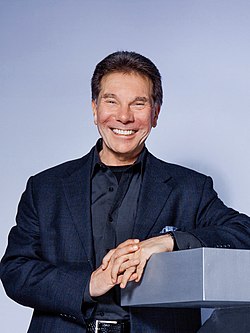Work
Cialdini wrote the 1984 book on persuasion and marketing, Influence: The Psychology of Persuasion. It was based on three "undercover" years applying for and training at used car dealerships, fund-raising organizations, and telemarketing firms to observe real-life situations of persuasion. He found that influence is based on six key principles: reciprocity, commitment and consistency, social proof, authority, liking, scarcity. [5] In 2016 he proposed a seventh principle. He called it the unity principle. The more we identify ourselves with others, the more we are influenced by these others. [6]
The book has sold over five million copies and has been translated into 41 languages. [7] It has been listed on the New York Times Best Seller list and Fortune lists it in their "75 Smartest Business Books". [8] It is mentioned in 50 Psychology Classics. [9] [10]
Cialdini’s books, particularly Influence and Pre-Suasion, have sold more than seven-million copies in 44 different languages. [11]
One of Cialdini's other books, Yes! 50 Scientifically Proven Ways to Be Persuasive, was a New York Times Bestseller; and another of his books, The Small BIG: Small changes that spark a big influence, was a Times Book of the year. [12] In 2016, Cialdini published Pre-suasion, which became a New York Times and Wall Street Journal bestseller. [13]
The Robert B. Cialdini prize from the Society for Personality and Social Psychology is named after him in honor of psychological research that demonstrates societal relevance using field methods. [14] He was elected a member of the National Academy of Sciences in April 2019. [15]
This page is based on this
Wikipedia article Text is available under the
CC BY-SA 4.0 license; additional terms may apply.
Images, videos and audio are available under their respective licenses.
